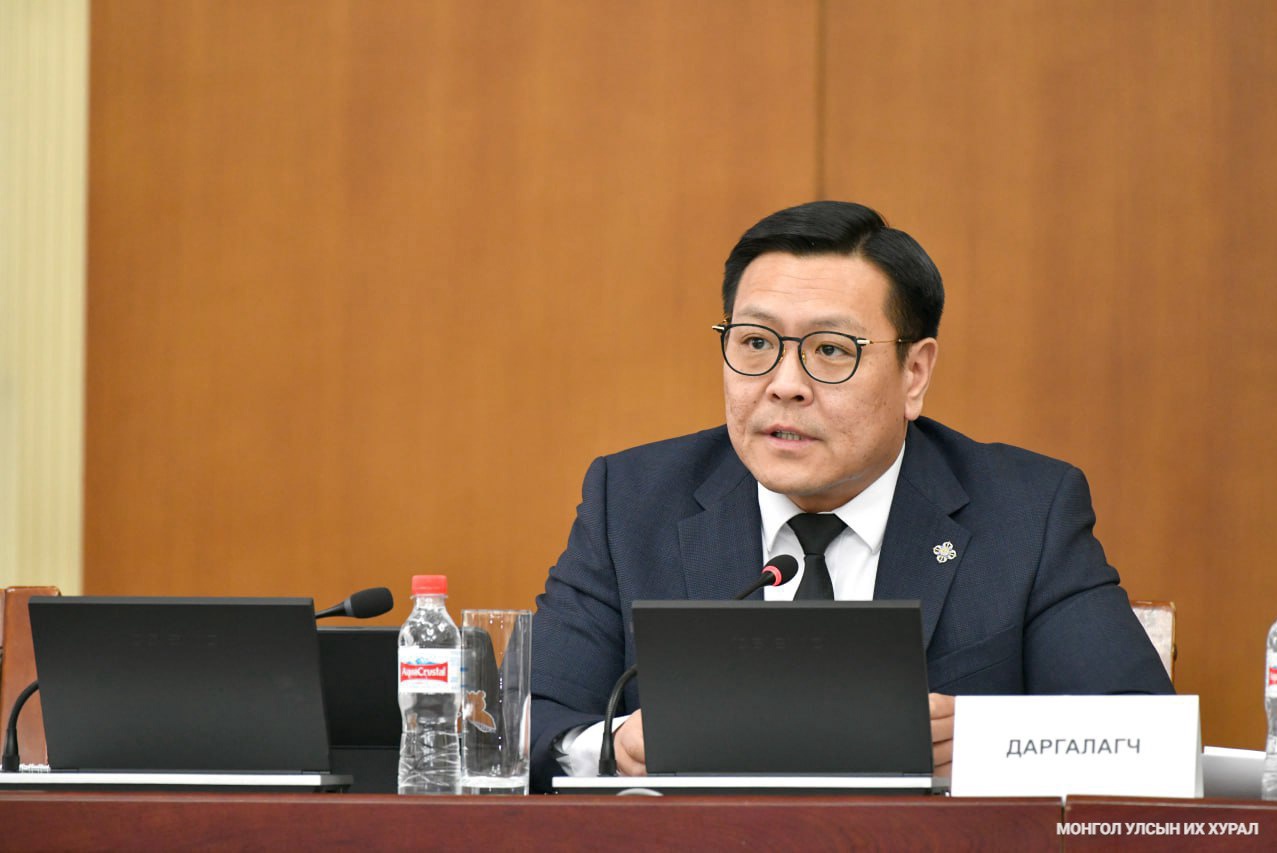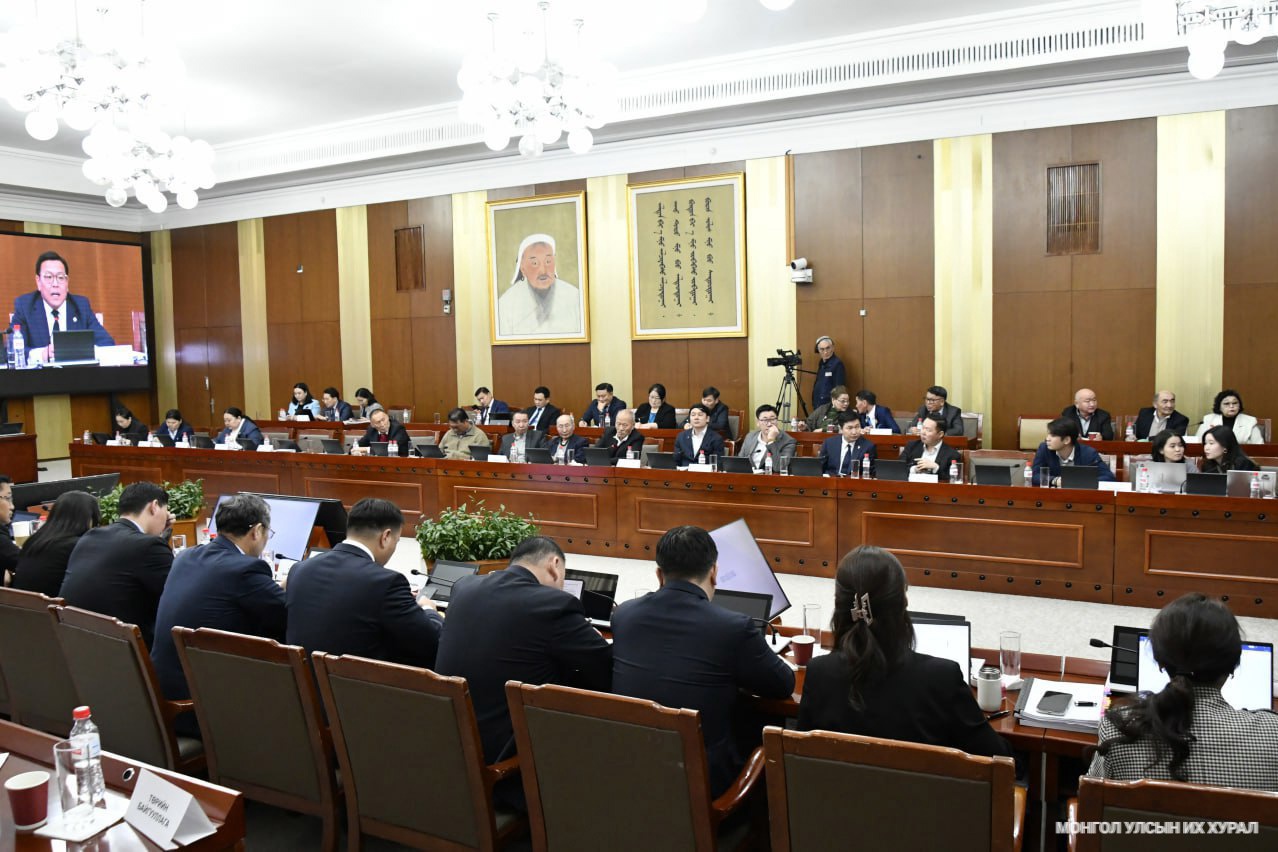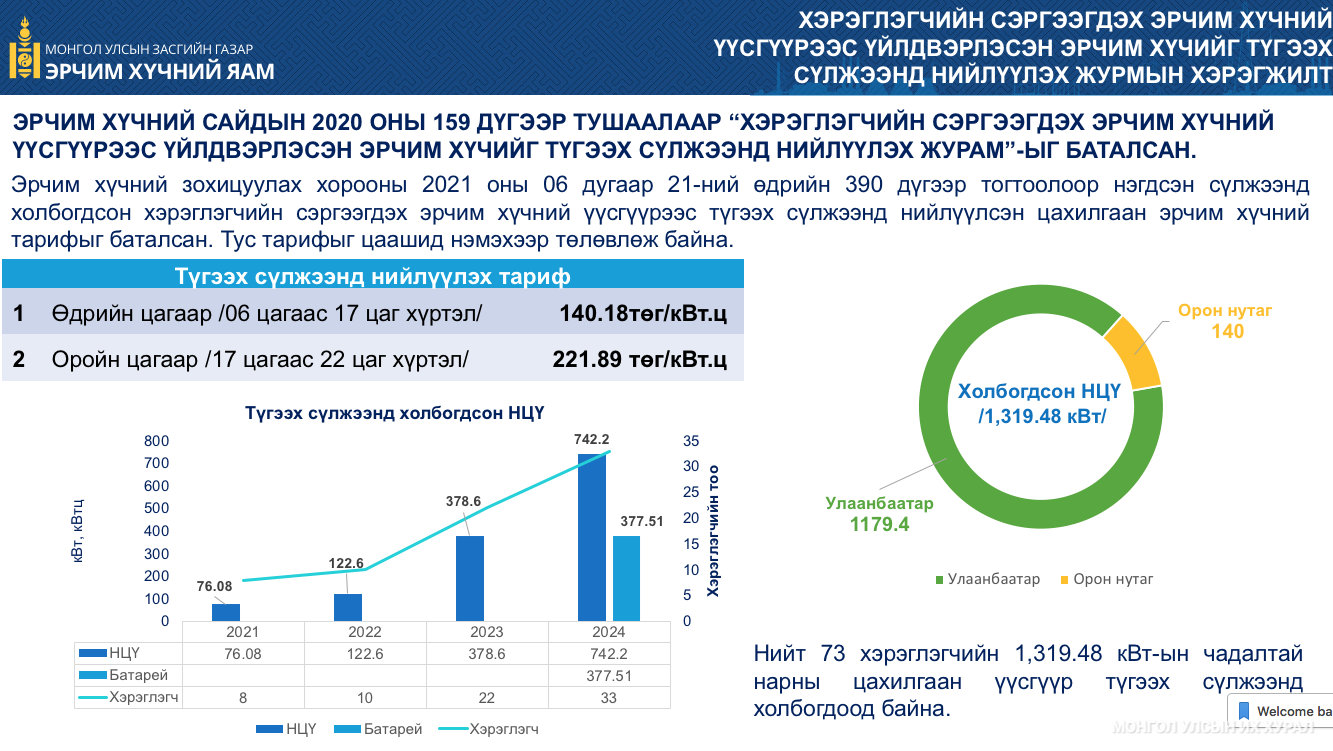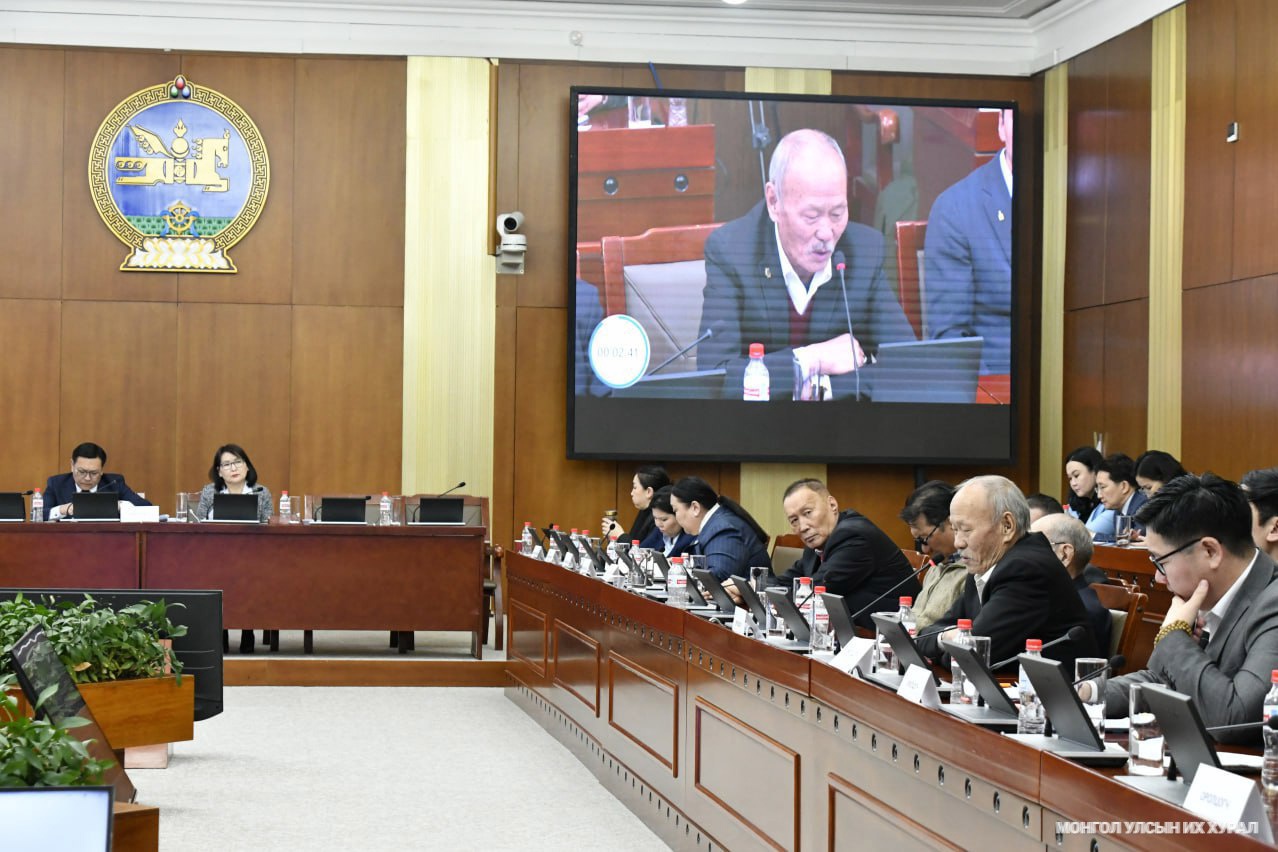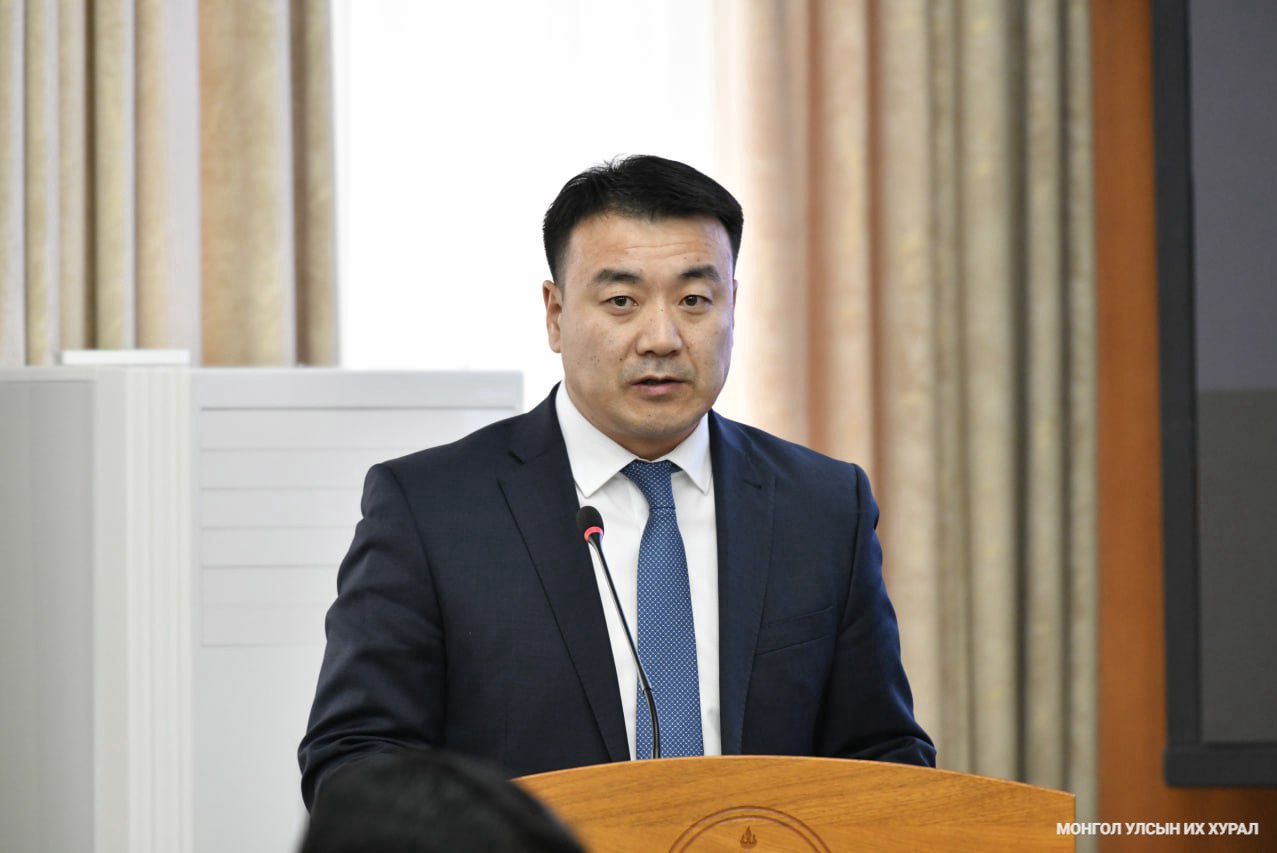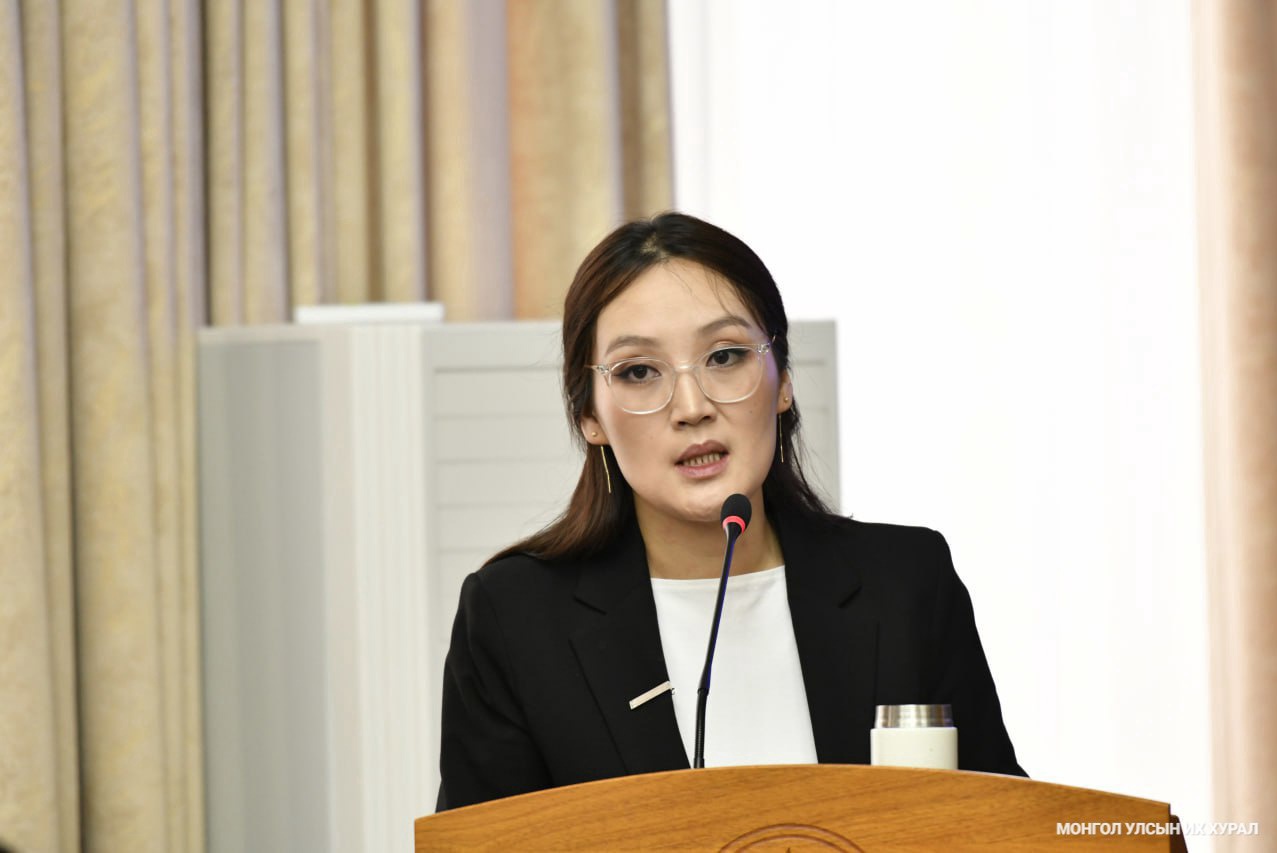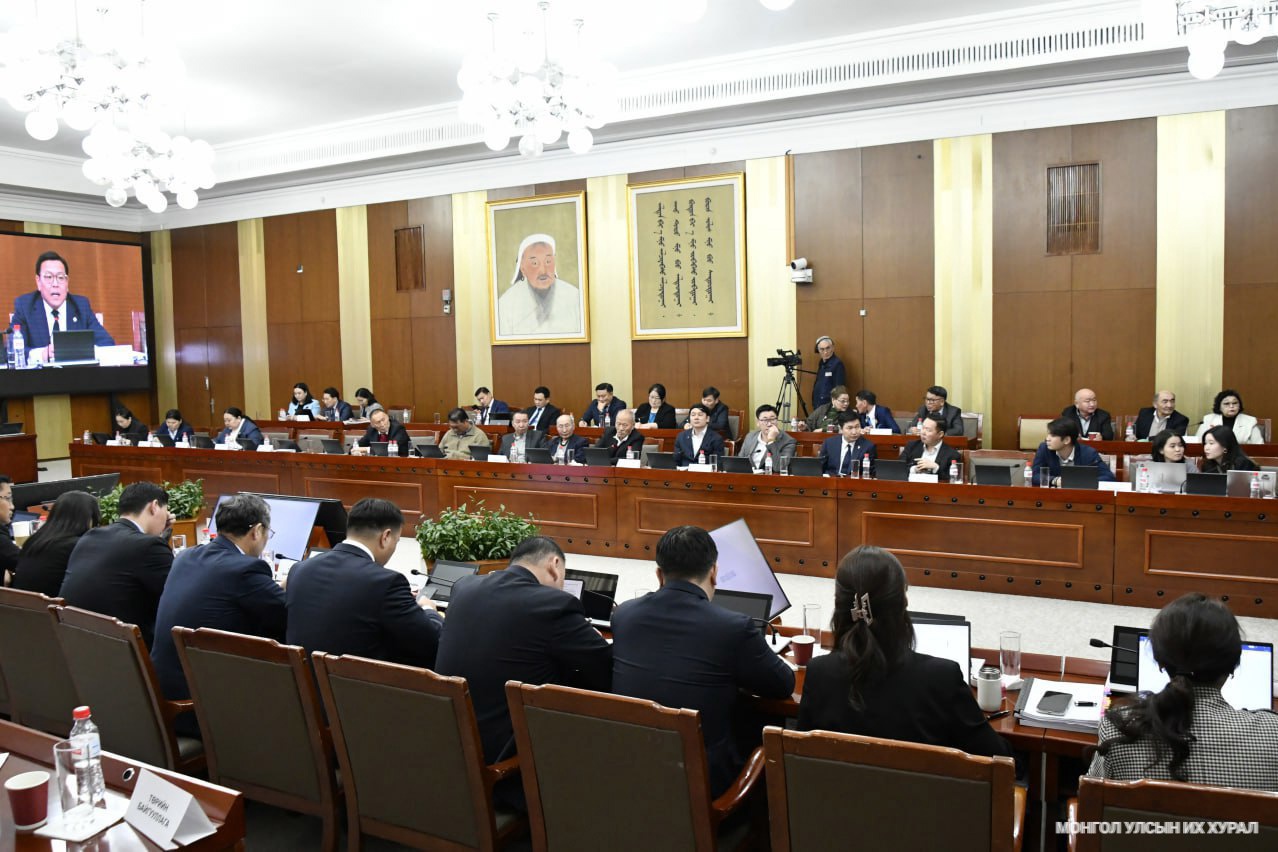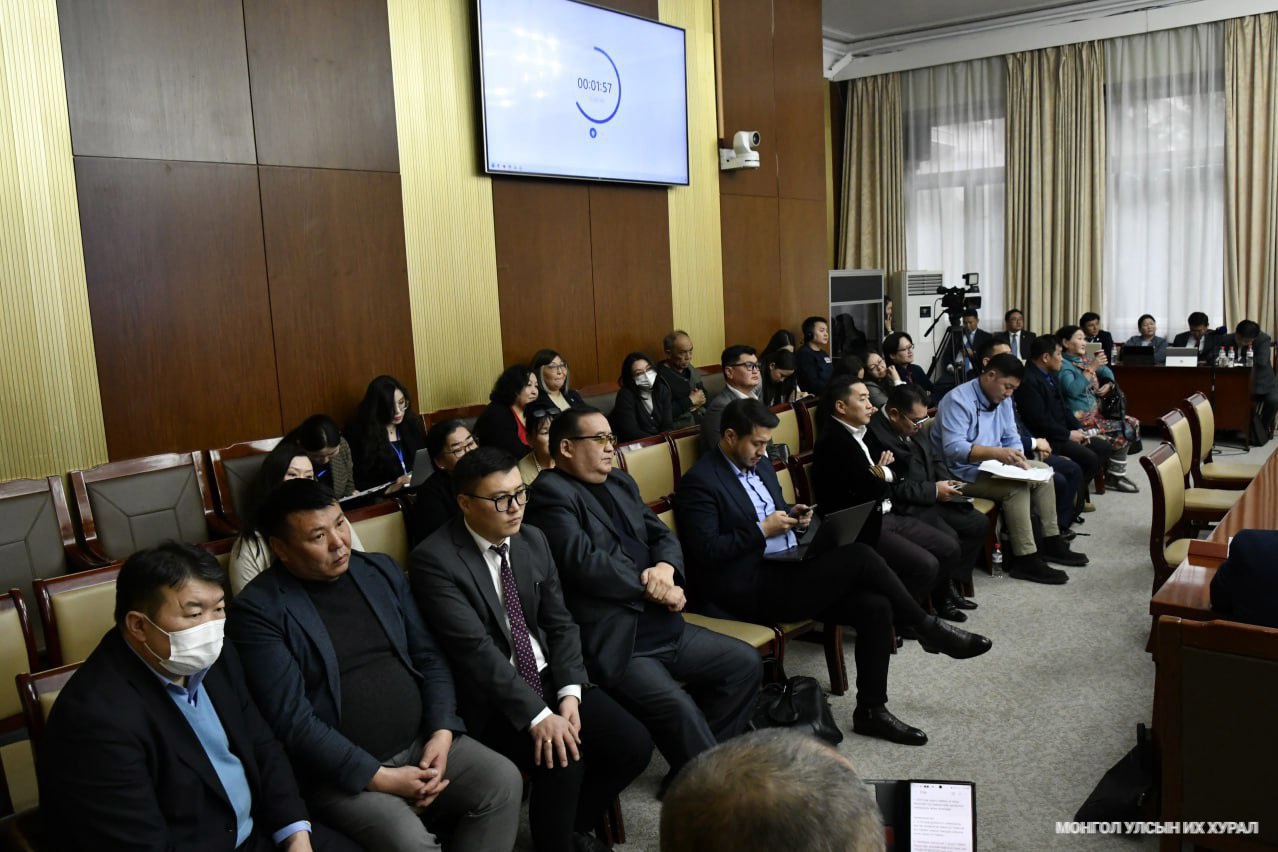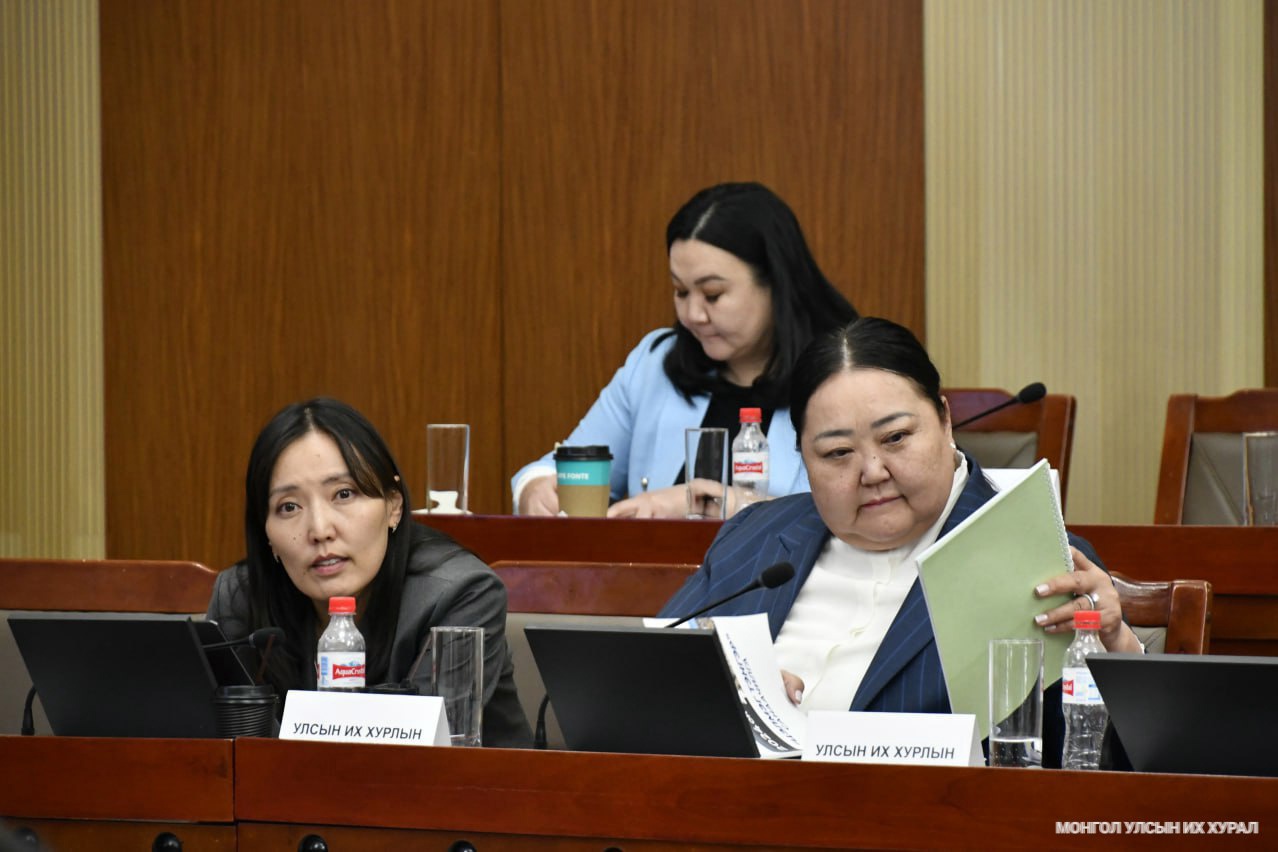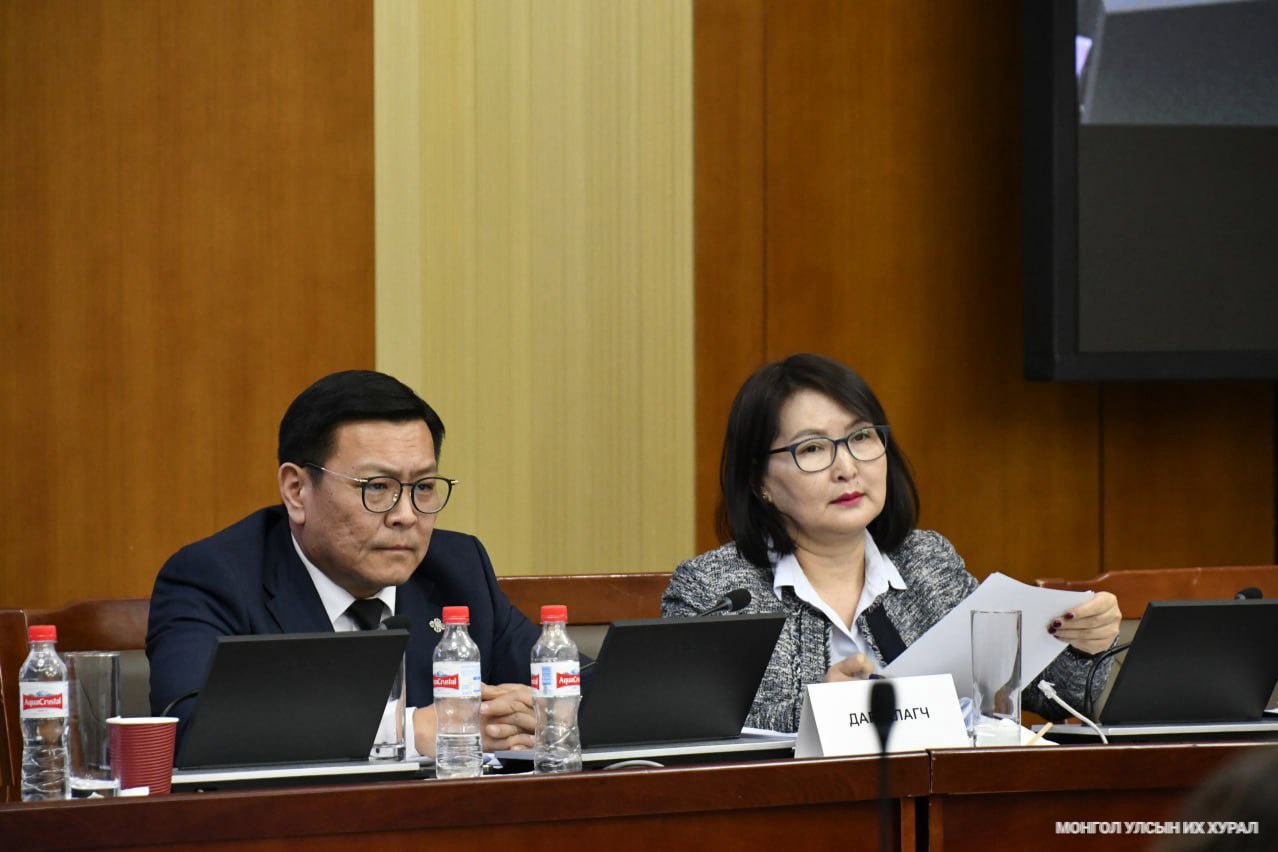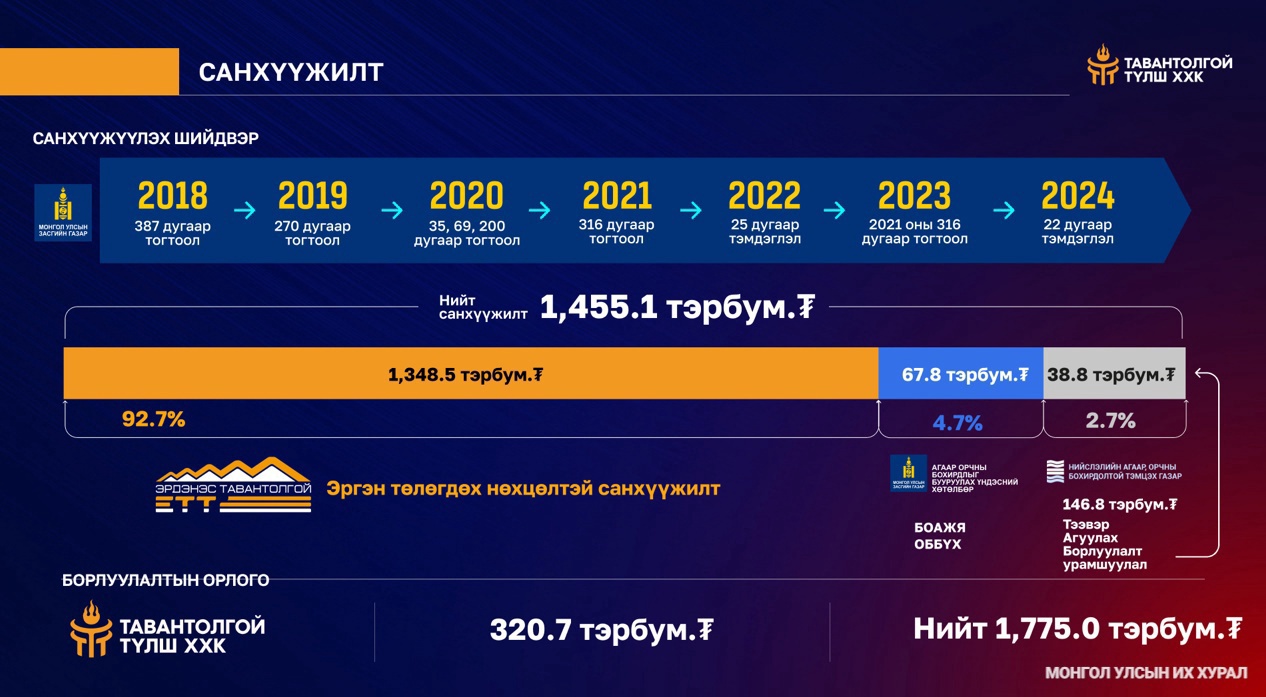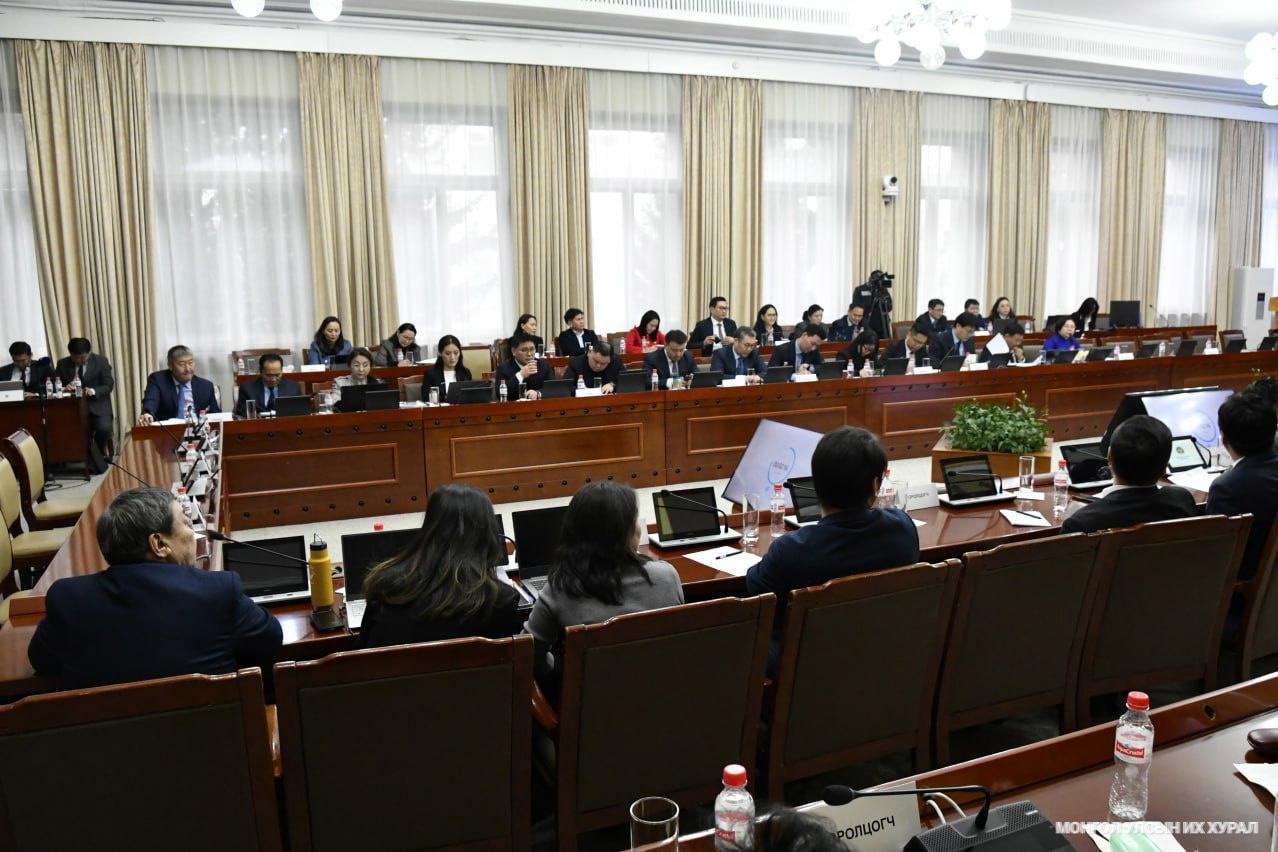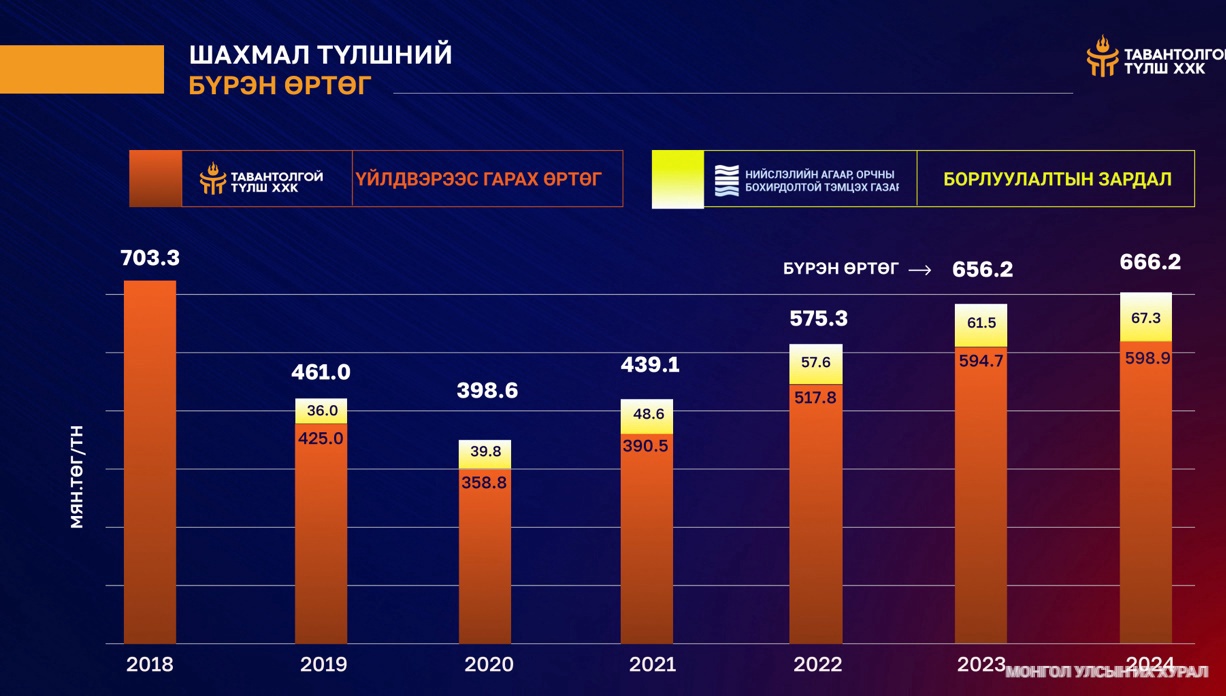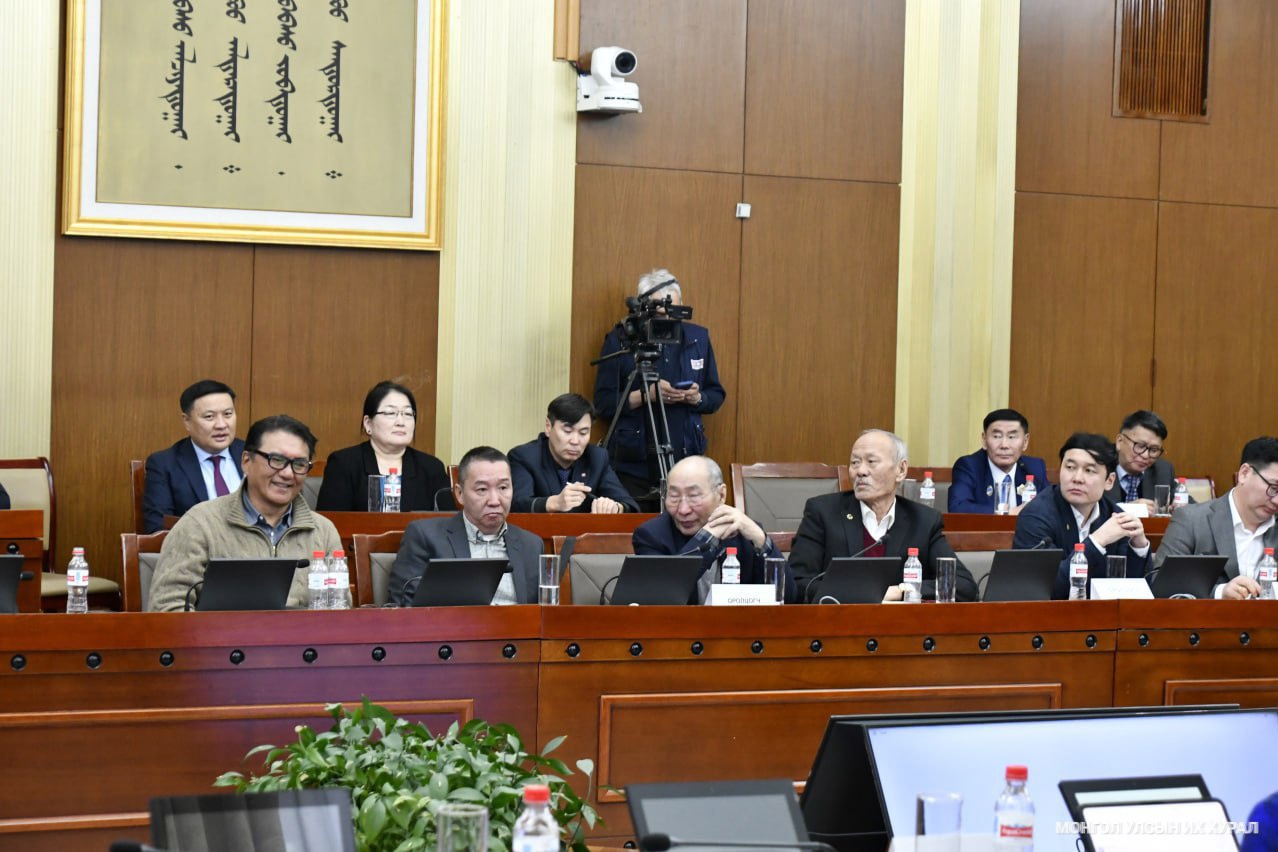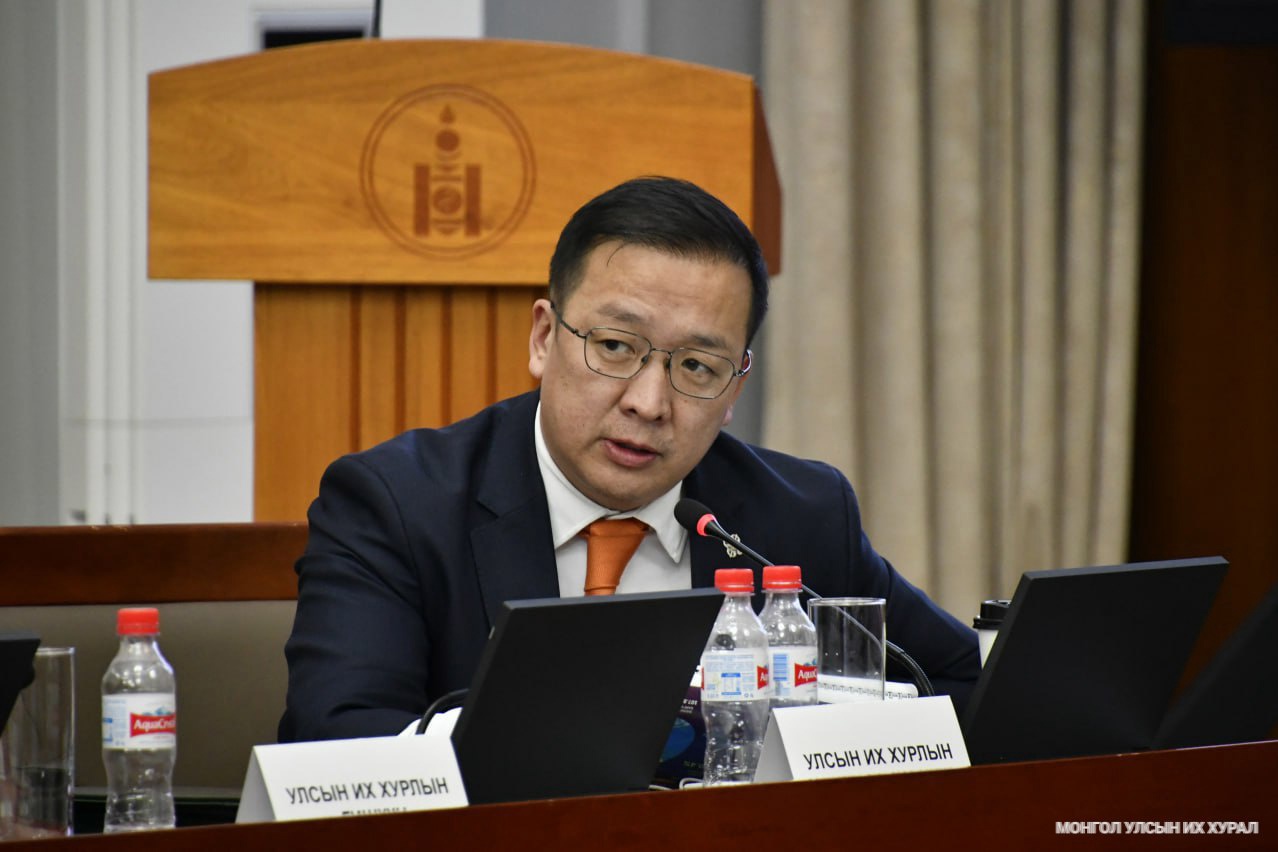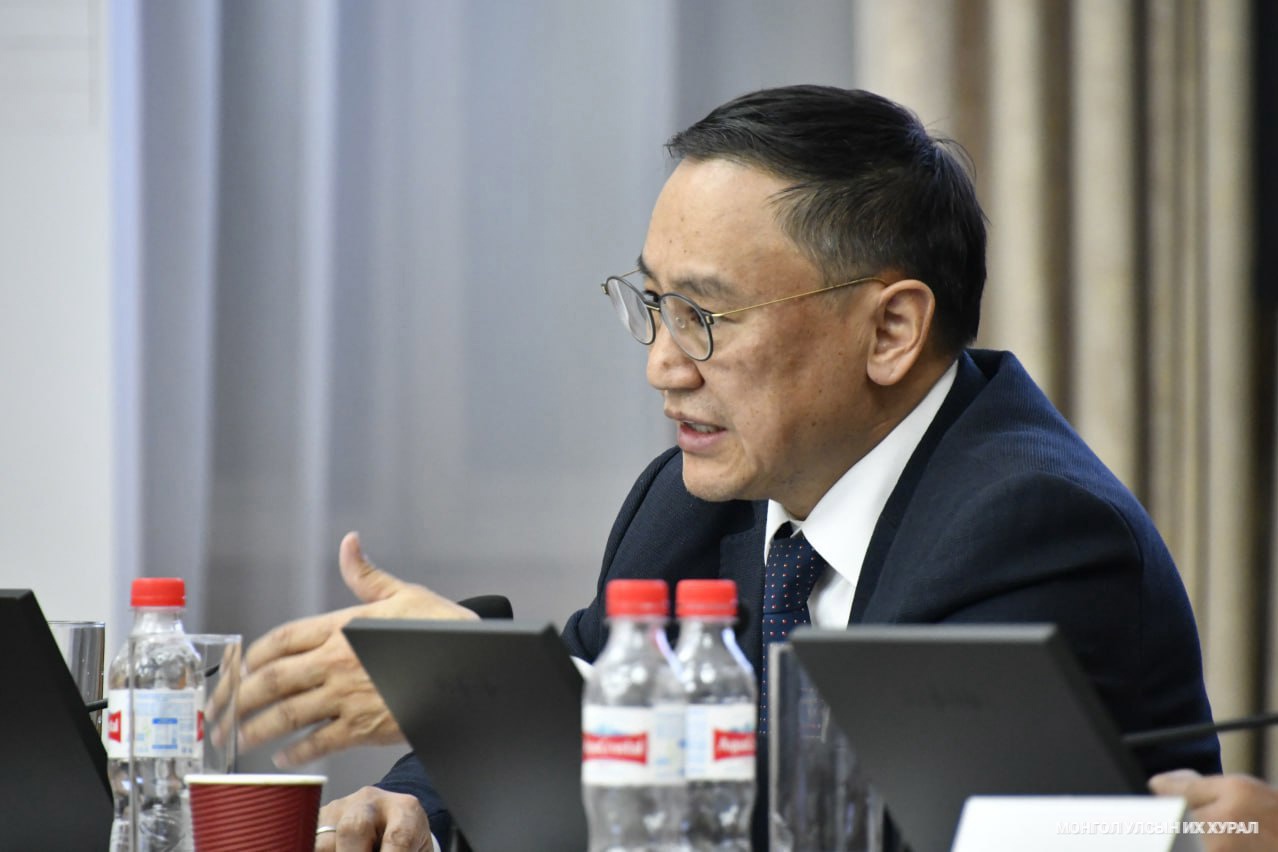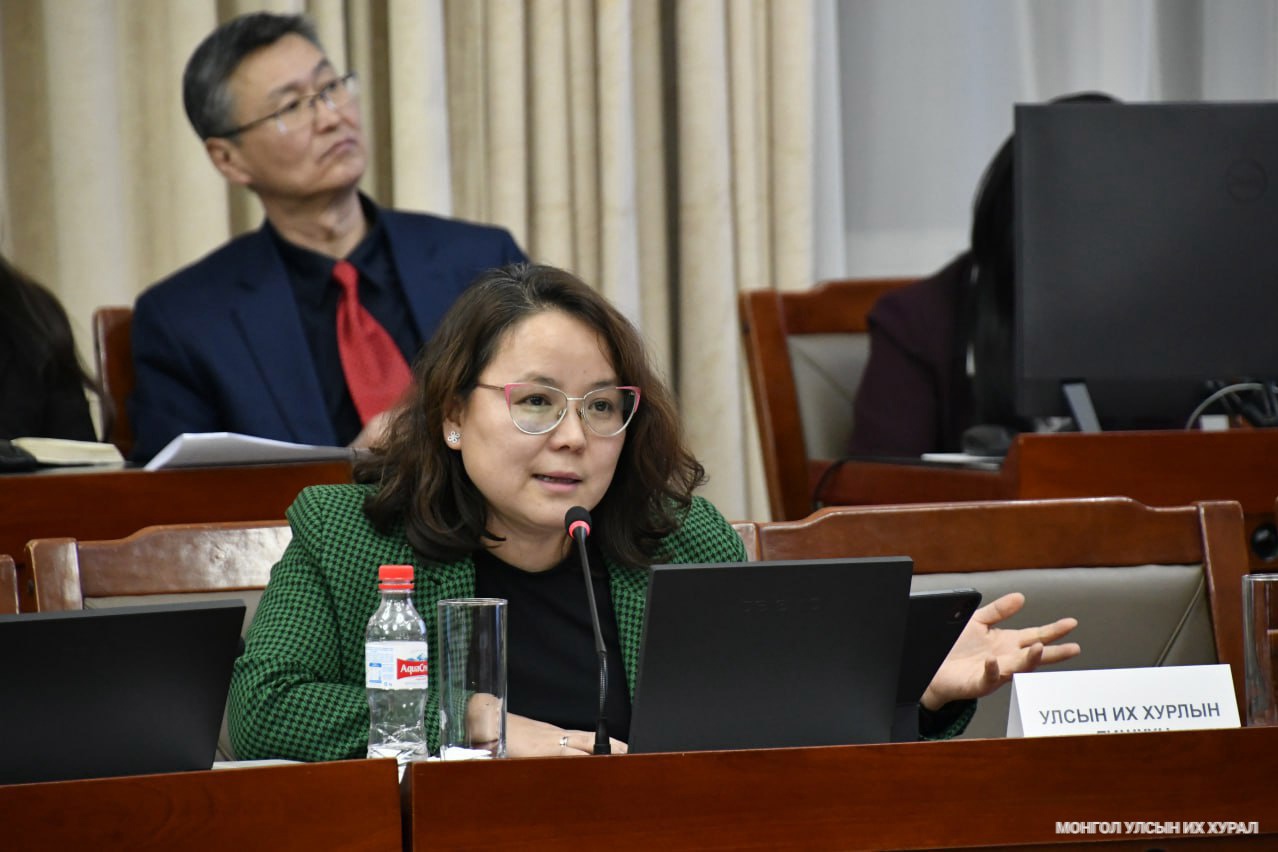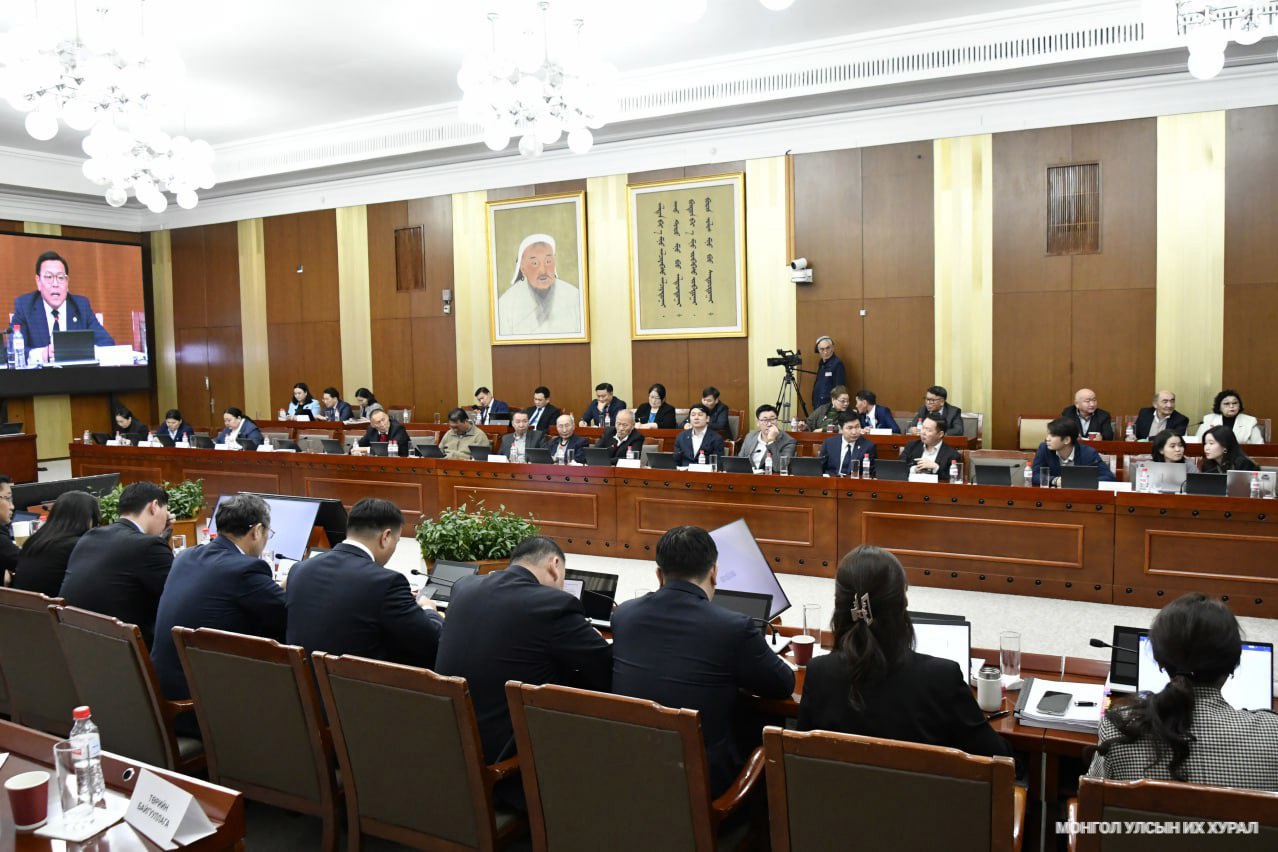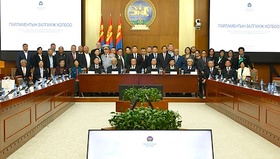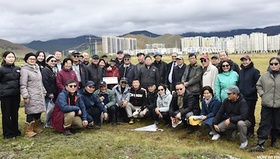The third sub-discussion on air pollution under the theme "Air Pollution: Legal Framework, Policies, Implementation of Decisions, Financing, Allocation, and Accountability" continued with presentations from relevant government agencies.
I. Luvsantseren, director of the Fuel Policy Implementation and Coordination Department at the Ministry of Energy, presented on "Measures Taken to Reduce Air Pollution: Financing and Results." He highlighted key efforts, including providing technical capacity for households to use 4.0 kW electric heaters during winter, phasing out heating boilers and connecting consumers to central heating systems, implementing nighttime electricity tariff discounts, enhancing the production and distribution of processed coal briquettes, and promoting the integration of renewable energy sources into the grid.
From 2017 to 2019, under the National Program for Reducing Air and Environmental Pollution, MNT 86.4 billion was invested in expanding the capacity of 309 overloaded substations by 28.1 MW and constructing 246 new substations with an additional 98.4 MW capacity, benefiting 41,964 households.
Additionally, between 2017 and 2021, MNT 43.59 billion was allocated to phase out 68 heating boilers in Ulaanbaatar and expand the central heating network, facilitating the connection of 646 buildings and dismantling 421 heating boilers.
As a result of these efforts, raw coal consumption was reduced by 204,600 tons, CO₂ emissions decreased by 547,000 tons, households in ger districts gained the ability to use electric heating, and enhanced energy supply reliability helped prevent electrical outages and accidents.
Furthermore, policy adjustments in renewable energy distribution have enabled consumers to sell surplus electricity generated from personal renewable energy sources to the national grid, offering them a new revenue stream.
Following this, Kh. Ariunzaya, head of planning and economics at Tavantolgoi Tulsh LLC, presented on "Policy Decisions, Financing, and Expenditures." She detailed the financial structure of the government-backed briquette production program, including MNT 1.76 trillion spent between 2018 and 2024, MNT 371.5 billion allocated for infrastructure investment, and MNT 1.39 trillion used for briquette production.
Since 2018, 2.77 million tons of briquettes have been produced, with 2.71 million tons distributed to consumers. In 2024 alone, the briquette distribution network reached 191,175 households across 616 distribution centers.
A total of MNT 6.49 billion in financial violations were identified by the Ministry of Finance, the Tax Authority, and Customs Inspections from 2018 to 2022, all of which were fully settled in 2023.
During the discussion, 32 participants representing civil society and citizens raised concerns regarding the 30–89% increase in electricity tariffs despite public expectations that cost increases should not exceed 20%, the 16% increase in housing prices in 2024, which contradicts the government's commitment to urbanization as a pollution-reduction measure, and the 33% execution rate of the National Committee for Reducing Environmental Pollution from 2017–2020, as per the audit report.
In response, State Secretary of the Ministry of Energy N. Tavinbekh stated that the electricity price hike was necessary because the sector had been selling energy at a loss, leading to financial instability. He explained that, starting November 2024, household electricity prices were adjusted as follows: 30% increase for consumption up to 100 kWh, 60% increase for consumption between 150–300 kWh, and 89% increase for consumption above 300 kWh.
Additionally, Deputy Mayor of Ulaanbaatar A. Amartuvshin, responsible for social sectors, green development, and pollution reduction, clarified that housing prices are regulated by market forces, though the city is making efforts to stabilize prices through urban redevelopment projects.
Minister of Environment and Climate Change S. Odontuya addressed the audit report findings, stating that insufficient government budgeting for pollution control measures has been a major obstacle. She revealed that only MNT 9.3 billion was allocated nationwide for pollution mitigation in 2024, forcing short-term, limited interventions.
Several MPs raised additional concerns. MP B. Bat-Erdene pointed out discrepancies in data provided by different government agencies. MP J. Zoljargal noted that MNT 2 trillion has been spent on short-term pollution reduction measures, yet long-term solutions remain unaddressed. MP B. Uyanga inquired about the enforcement of the Air Pollution Charge Law. MP P. Batchimeg questioned whether reported reductions in air pollution metrics were accurate, and MP O. Saranchuluun asked about government support for businesses impacted by rising electricity costs.
In closing, MP B. Bayarbaatar, chair of the Standing Committee on Ethics and Parliamentary Procedures, emphasized the significance of these discussions in preparing for a general oversight hearing on air pollution. He noted that three preliminary sub-discussions had been held, laying the groundwork for long-term policy solutions.
MP B. Bayarbaatar acknowledged that air pollution will not disappear overnight, but stressed that concrete outcomes from the oversight hearing must lead to impactful reforms. He pointed out that for 25 years, air pollution policies have been debated, yet pollution levels and toxicity have only increased. He emphasized that the public petition initiative led by Mongolian citizen B. Mungunkhishig, which gathered over 70,000 signatures, has driven the three sub-discussions and the upcoming general oversight hearing, marking a significant step forward in addressing air pollution through parliamentary oversight.

 Eng
Eng  Монгол
Монгол